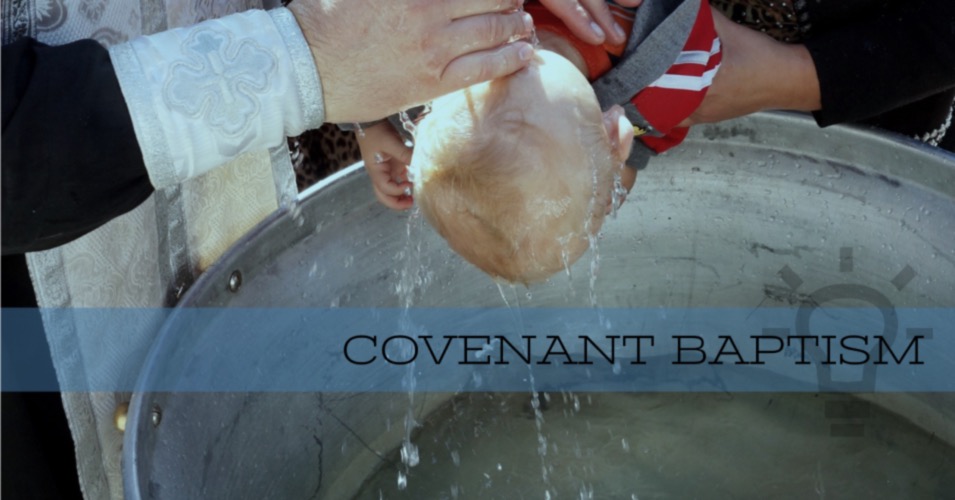Vos writes to Bavinck about baptism:
(From "Geerhardus Vos: Professor at the Theological School in Grand Rapids" by Danny E. Olinger. Read more at https://goo.gl/d7NzWY )
"Vos then reached out to Bavinck for help and advice in regard to the doctrine of the covenant of grace. He explained that the dualistic belief that placed covenant and election next to each other without any inner connection was prevalent among many Reformed believers in America. The covenant becomes a strengthened gospel offer. Election comes last, and functions like a second Amyraldian conclusion.[40] It also appears as if people are embarrassed to speak about covenant and election in the same sentence, and yet, it is in the covenant that the sovereign grace of God shines so clear. Vos said:
"I always thought that the issue was as follows: the connection between covenant and election rests on this, that God in the offer of sanctifying grace generally follows the line of descent. That therefore being in the covenant still means more than living under an extraordinary solemn gospel offer or to carrying within one’s self a covenant offer. That this greater value exists is the presumption that one finds oneself within the circle or on the line of election, a presumption which rests on God’s promise, the God of you and your seed. That therefore adults, not born within the covenant, are admitted only on a reliable confession of saving faith. In the meantime, I do not want anyone to Labadistically[41] set himself up as a judge over someone’s (spiritual) state. I object to falsely leading someone to believe that historical faith only can make him right in the presence of God in the covenant.[42]"
Vos then described to Bavinck his view of the relationship between the covenant and the sacraments. The sacraments seal the offer of the covenant from God’s side and make it a closed covenant. The content of the sealing is “in the presupposition that you are a true covenant child, the right of all the covenant blessings is sealed to you.” [43] He made clear, however, that he would distinguish between sealing that is “on the condition that” and “in the supposition that.” He explained, “The first sounds totally general and applicable anywhere. In this way, anywhere on the mission field the sacraments could accompany the external calling. The other, however, requires a well-founded presumption that one is talking about covenant children.”[44]
If, however, baptized children grew up and turned their back on the faith, it did not follow that they have nothing to do with the covenant. They will be treated and punished by the Lord as covenant-breakers insofar as they have been in the covenant.
Vos then immediately added that he had objections to the following situations. First, when the comfort of the covenant is lost because children who have been baptized stray from the faith; second, when emphasis of the covenant is sought solely in the duties and demands of the children; and, third, when the grace of regeneration is left outside the horizon of the covenant.[45]
Baptism, Vos continued, has to be viewed more penitently and include the positive promise of God that the seed of the faithful will beget a seed. If this were not the case, then there would be no logical ground to believe that the children of believers dying in infancy will be saved. Vos believed this was the consensus of Reformed theology up to the Synod of Dordt."

